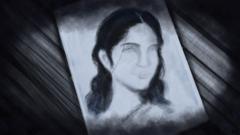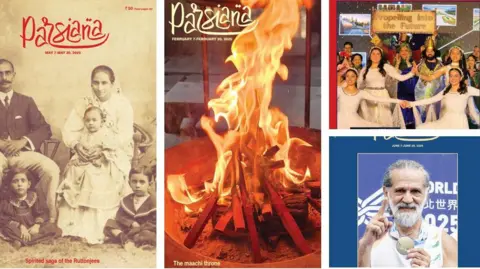In the 1920s, when the Indian film industry was just budding, a young woman named PK Rosy stepped into the spotlight as the first female lead in Malayalam-language cinema. Her performance in "Vigathakumaran" or "The Lost Child" in Kerala should have secured her legacy as a pioneering actress. Instead, Rosy's journey has been overshadowed by harsh caste discrimination and social backlash, erasing her pivotal role in cinema history.
Born Rajamma, PK Rosy hailed from the Pulaya community, a lower-caste group historically marginalized in India. Living in the kingdom of Travancore, known today as Kerala, Rosy faced severe oppression. Malavika Binny, a history professor at Kannur University, highlighted the brutal conditions suffered by Pulayas, noting that they were often treated as slave labor and subjected to violence for perceived transgressions.
Amid these societal constraints, Rosy defied norms by pursuing a career in acting, buoyed by support from her uncle, also a theatre artist. Though records of her life are sparse, those familiar with her legacy acknowledge her talent in local performances. She soon caught the attention of JC Daniel, a director searching for a lead actor for his film. Aware of Rosy's Dalit identity, he nonetheless chose to cast her, paying her a respectable wage for the time.
However, the premiere of "Vigathakumaran" proved disastrous. Rosy and her family were barred from attending due to their caste, which ignited public outrage. According to reports, audiences threw stones at the screening and pursued the director out of anger, leading to significant backlash that ultimately sidelined both Rosy and Daniel. Struggling with debt after the film's failure, Daniel would never make another movie.
In the wake of the backlash, Rosy fled her hometown and severed ties with her family to escape identification. She later married an upper-caste man, assuming the name Rajammal, and lived out her days in obscurity. Tragically, her children distanced themselves from her Dalit heritage, preferring to embrace their father's upper-caste identity. Rosy's nephew, Biju Govindan, expressed the emotional weight of this disconnect, revealing the ongoing struggle with caste identity within the family.
In a bid for recognition, recent movements have sought to reclaim Rosy's lost legacy. Dalit filmmakers and activists, including Tamil director Pa Ranjith, have initiated festivals and foundations commemorating her life and contributions. Yet, as Prof Binny points out, Rosy's story serves as a poignant reminder of how deeply rooted caste trauma can alter lives, leaving many to prioritize survival over their passion.
Rosy’s existence, once ardently tied to her artistry, became a painful narrative of erasure, a reflection of society's failures rather than her own. While a measure of reclamation is underway, the haunting echoes of an impactful life remain shrouded in silence.




















